
Lot 78
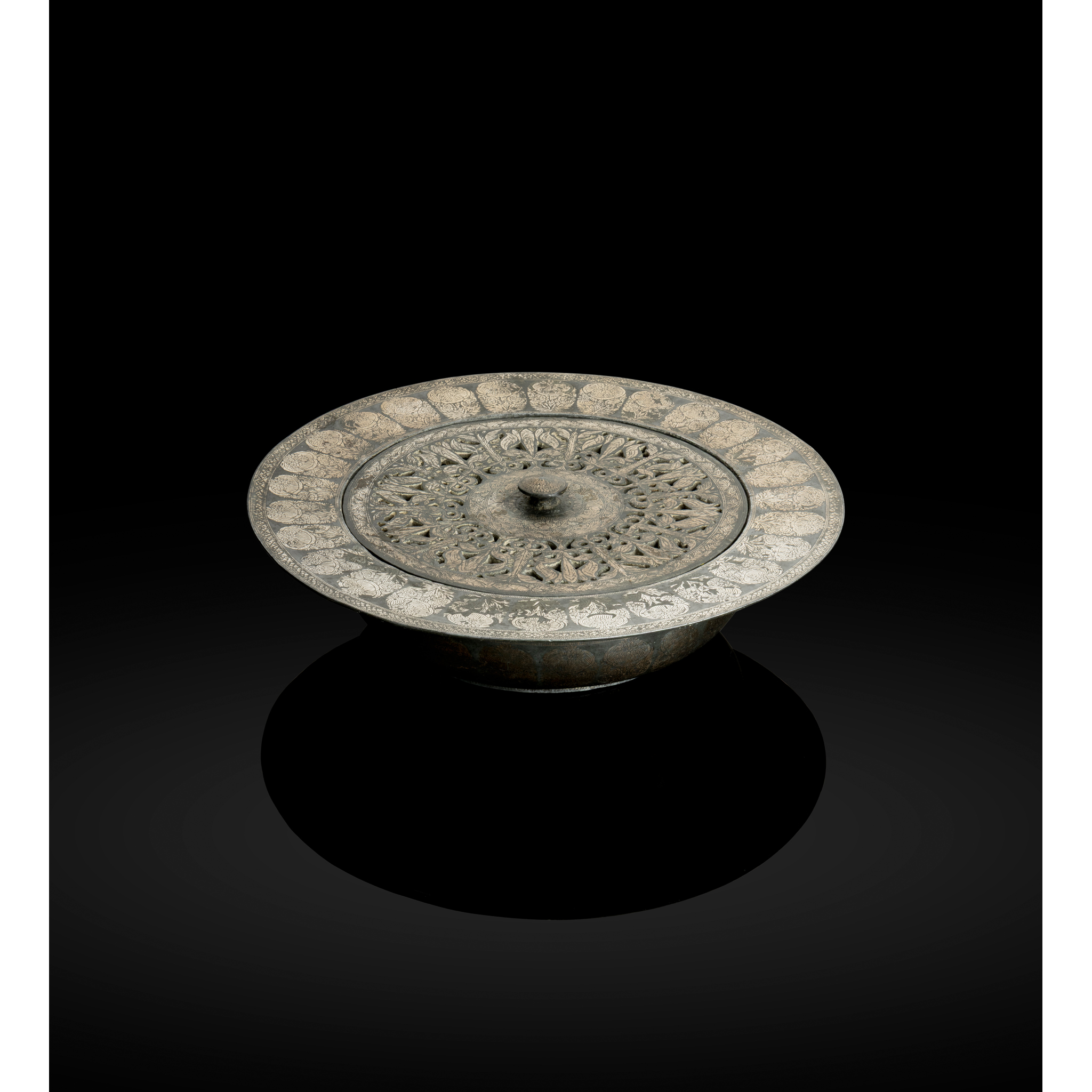
A SUPERB BIDRI SILVER INLAY BASIN AND LID DECORATED WITH POPPY SPRAYS
INDIA, DECCAN, LATE 17TH CENTURY/ EARLY 18TH CENTURY
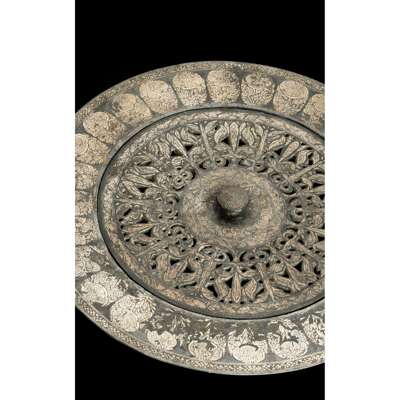
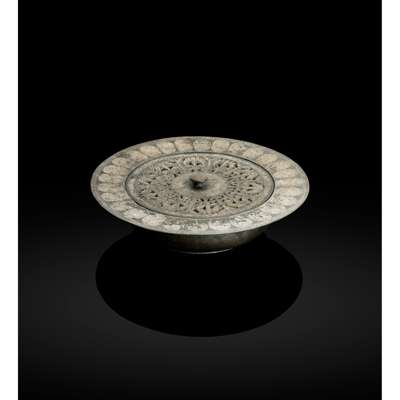


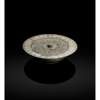
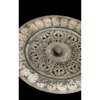
Auction: 10 December 2025 from 14:00 GMT
Description
with typical globular body and wide upturned rim, with its original fitted pierced lid, the rim and body decorated with a wide band of repeat poppy sprays, the pierced lid with further floral decoration
Dimensions
12cm high; 38.4cm diameter
Footnote
Bidri refers to the distinctive metalwork tradition developed in the Islamic Deccan, centred in the city of Bidar, from which it takes its name. Produced from an alloy predominantly composed of zinc, Bidri ware is characterised by the intricate inlay of silver or brass, creating a striking contrast against the darkened metal surface.
The earliest surviving examples, such as the present piece, date to the 17th century. This basin originally formed part of a ewer and basin set, essential in the Islamic world for ablution rituals—the washing of hands before and after meals, and prior to prayer. The ewer would have rested on the pierced grate fitted within the recessed rim above the water chamber of the basin, allowing water to drain neatly below.
Only one complete matching set of this type is known today. Among surviving examples, basins are considerably rarer than ewers, underlining the significance of this piece (see: Mark Zebrowski, Gold, Silver and Bronze from Mughal India, London, 1997, p. 169.). In addition, it is rare to find a basin with its original lid or pierced grate, such as in the present lot. For another basin with its matching lid, see op. cit no. 246.
The striking repeat design of poppy sprays around the rim and body of the basin is highly attractive and desirable.





